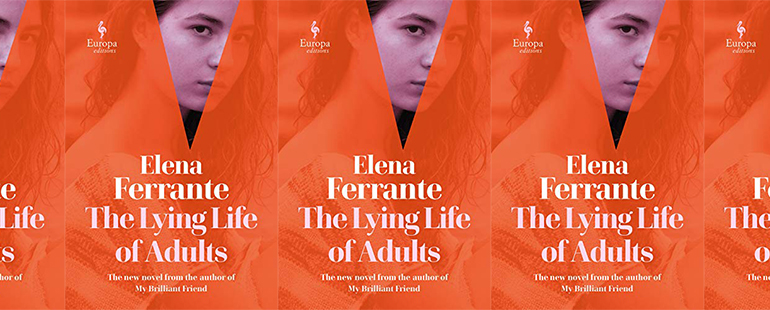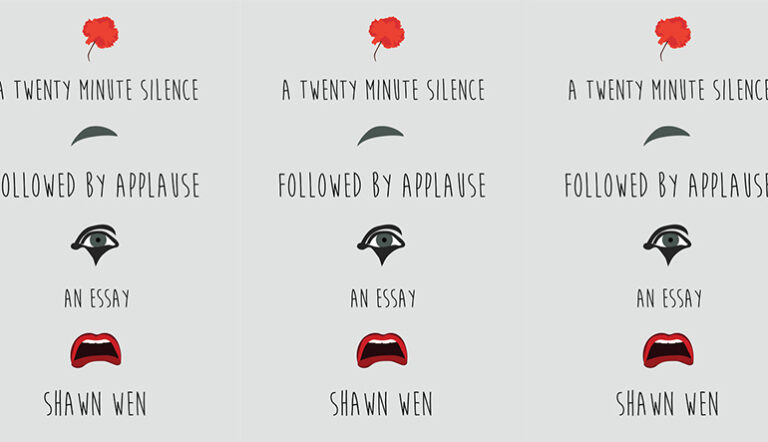Truth, Beauty, and The Lying Life of Adults

In an essay written for the Guardian and published in the 2019 collection Incidental Inventions, Elena Ferrante confesses that as a child she was “a big liar,” and that of all the many kinds of lies she told, she liked best the lies that “served absolutely no purpose.” These were early attempts at creating fiction, and they charmed her audience: “I was very successful with my peers, who were beguiled by my stories; they believed me and would have listened to me for ever.” When she was about twelve years old, however, Ferrante says, “I decided not to lie any more. Perhaps I simply wanted to become adult, and telling lies seemed childish.” At the same age, Giovanna Trada, the narrator of Ferrante’s latest novel, The Lying Life of Adults, begins to discover the opposite—that the adults in her life are all liars. And though she “had been brought up never to tell lies” and initially has neither experience nor skill at deceiving, Giovanna, too, begins to lie, mainly to protect herself as she strives to satisfy her curiosity about the world and people beyond her home in Rione Alto, Naples. As she listens to the stories the adults around her tell to explain their lives, Giovanna navigates the crisis of her adolescence, arriving at her own understanding of how to become an adult—and how beauty and truth figure into that journey.
In the opening lines of the novel, Giovanna questions whether it is possible for her to capture the truth in relating her own story. From the moment one February when she heard her father say that she was “very ugly,” she says,
I slipped away, and am still slipping away, within these lines that are intended to give me a story, while in fact I am nothing, nothing of my own, nothing that has really begun or really been brought to completion: only a tangled knot, and nobody, not even the one who at this moment is writing, knows if it contains the right thread for a story or is merely a snarled confusion of suffering, without redemption.
Giovanna’s adolescence, as well as the poor grades in school that follow its onset, occasions a break with her father, Andrea Trada, a teacher and intellectual whom she describes as “unfailingly courteous,” “refined,” and cheerful, always seeking, when she was a girl, to make her smile. Through her childhood, her father praised Giovanna, teasing that he wanted to steal her pretty hair: “He always wanted something of mine, my ear, my nose, my chin: they were so perfect, he said, he just couldn’t live without them. I loved that tone, which proved to me over and over again how indispensable I was to him.” When she begins to menstruate and worry about her breasts and body odor, she consoles herself with the thought that at least her father adores her. She is devastated, then, when she overhears her father say to her mother that Giovanna is “getting the face of Vittoria.”
Vittoria is Giovanna’s aunt, her father’s sister, “a woman in whom—I had heard him say as long as I could remember—ugliness and spite were combined to perfection.” Giovanna hardly knows her aunt or any of her father’s relatives; the few visits to their homes she remembers seemed to cause her parents an “anomalous anxiety”—or, she realizes, exposed an anxiety that was always present, “perhaps the only memory of distress in a happy childhood.” And so, hearing that hers is becoming like her aunt’s face, Giovanna begins her quest “to go and see what Aunt Vittoria’s face was really like.”
Is Aunt Vittoria actually ugly? Is Giovanna? Based on Giovanna’s descriptions, it is impossible to answer either question with any certainty; indeed, the novel calls into question the meaning and value of such categories as “ugly” and “beautiful.” For example, Giovanna becomes obsessed with looking at herself, and her description of her features reveals not so much what she actually looks like as it does her anxiety and judgment of her changing adolescent body:
Thus, features that I hadn’t noticed before became evident: thick eyebrows, eyes that were too small and dull brown, an exaggeratedly high forehead, thin hair—not at all beautiful, or maybe not beautiful anymore—that was pasted to my head, big ears with heavy lobes, a short upper lip with a disgusting dark fuzz, a fat lower lip, teeth that still looked like baby teeth, a pointed chin, and a nose, oh what a nose, how gracelessly it extended toward the mirror, widening, how dark the caverns on the sides . . . . Was my body—the long neck that seemed as if it might break like the filament of a spider web, straight bony shoulders, breasts that continued to swell and had dark nipples, thin legs that came up too high, almost to my armpits—me or the advance guard of my aunt, her, in all her horror?
As for Vittoria herself, when Giovanna finally lays eyes on her, Giovanna finds that she has “a beauty so unbearable that to consider her ugly became a necessity.” Considering Vittoria ugly is necessary insofar as Giovanna wants to maintain her alignment with her father and his views, but in truth, she is attracted to Vittoria’s unmade-up, expressive face—with black eyes that sparkle and shine, and a large mouth that can seem grim or open wide in laughter. Giovanna’s fascination with her aunt and her face deepens the rift with her father.
Giovanna’s parents arrange her first visit with Vittoria after they realize that Giovanna had overheard and been wounded by her father’s careless comment about her face. The purpose, Giovanna’s mother tells her, is to “go and see what and who Aunt Vittoria is, so you’ll do all you can not to be like her.” Vittoria lives alone in the Industrial Zone of Naples, in the building where she grew up with Giovanna’s father and their other siblings. To Giovanna, who grew up and lives on the highest part of the Vomero hill in Naples, this district is like another city, “made up of rows of small bleak apartment buildings, faded walls, industrial warehouses and sheds, gashes of green overflowing with garbage of every sort, deep puddles filled by the recent rain, putrid air.” Vittoria cleans the homes of the wealthy for a living and speaks the Neapolitan dialect that is banned in Giovanna’s home. Andrea disowns his sister, it seems, out of a desire to disown his origins in a rougher, poorer family and neighborhood.
According to Giovanna’s parents, Vittoria is envious of the success that enabled her brother Andrea to leave the neighborhood where she still lives—“How hard he worked at school and university. His intelligence. What he has constructed. His degree. His job, our marriage, the things he studies, the respect that surrounds him, the friends we have, you,” says Giovanna’s mother—and blames her brother for her lot in life, and particularly for intervening in her affair with Enzo, the married police sergeant to whom she remains devoted seventeen years after his death. Giovanna’s parents claim that this intervention saved Vittoria from ruin. According to Vittoria, however, Andrea’s intervention not only ruined Vittoria’s life but also led to Enzo’s illness and death. And Andrea was compelled to tell Enzo’s wife about the affair, not for any noble reasons but because he was angry that Vittoria wanted, after the death of their parents, to go on living in their home rather than sell it and divide the proceeds among the five siblings. In Vittoria’s view, it is Andrea, not Vittoria, who is the jealous one. “Your father erases everything that might be better than him, he’s always done that, he was already doing it as a child. He thinks he’s smart, but he’s never been smart: I am smart, he’s only clever,” says Vittoria to Giovanna.
Vittoria’s version of the story is not necessarily truer than the version presented by Giovanna’s parents, and Giovanna herself does not initially choose sides. She says, “I forced myself to hide the fact that, although I continued to believe in their version of things, I also believed a little in my aunt’s. I carefully avoided saying that Vittoria’s face, to my great surprise, had seemed so vividly insolent that it was very ugly and very beautiful at the same time, and so now I was hovering between the two superlatives, puzzled.” Maintaining even this ambivalent position requires Giovanna to deceive her parents and, with the encouragement of Vittoria, she begins to study her parents more closely, seeing, for example, her father’s excessive attachment to money. When, due to his lover’s possession of a bracelet that Vittoria claims to have given Giovanna when she was a baby, Giovanna learns that her father has been having an affair with a family friend since even before she was born, her family life as she has known it unravels, and with it, her father’s “dazzling authority” in her mind.
Initially, after her father leaves Giovanna and her mother to “live happily in a beautiful house in Posillipo” with his lover Costanza and her two daughters, Giovanna’s best friends, Giovanna blames herself: “I thought he had left because of the revulsion I inspired. Grieved, resentful, I decided that I wouldn’t study. . . . I went from wearing white or pink to black, my eyes were black, my lips, every item of clothing was black. I was in a daze, indifferent to the teachers’ reproaches, unmoved by my mother’s complaints.” Andrea visits Giovanna, picking her up from school and taking her to a shop to eat panzarotti and pastacresciuta, but they have little to say to each other. “The silence saddened me, irritated me,” Giovanna says, “I felt that my father was giving up on being my father. He looked at me when he thought I was distracted and didn’t notice, but I did notice and felt that his gaze was bewildered, as if he had trouble recognizing me, all in black from head to toe, with heavy makeup; or maybe as if I had become too well known to him, better known than when I had been his beloved daughter—he knew that I was two-faced and devious.”
Their two-faced nature, she comes to see, is something her father can neither talk about nor even acknowledge. She wishes one night that she could “discuss with him the bad that, while you seem to be good, gradually or suddenly spreads through your mind, your stomach, your whole body. Where does it come from, Papa—I wanted to say to him—how do you control it, and why does it not sweep away the good but, rather, coexists with it.” She finds it impossible, while he, “overwhelmed with emotions,” in “muddled speeches” continues “anxiously to pile up justifications, accusations, a frenzy of self-denigration and a frenzy to redeem himself by listing his grand reasons, his pain and suffering.” In the end, however, his authority and gifts of rhetoric are unequal to addressing or redeeming the tumult and ambiguity of human nature.
Men like Giovanna’s father claim the authority to identify what is “good” and “true” and what is “beautiful.” And, as in the conclusion of John Keats’s “Ode on a Grecian Urn,” truth and beauty are typically assumed to coexist. In her interviews and essays, Ferrante has argued in favor of the opposite view, rejecting “the cult of the beautifully wrought page” in favor of the “rough draft with all its sloppiness”; she associates dazzling prose with “the falsest of affectations” and artifice. Giovanna, like Ferrante, ultimately rejects any association between beauty and what is good and true: “If you looked even just for a moment at those who had the privilege of a beautiful, refined face, you discovered that it hid infernos no different from those expressed by coarse, ugly faces. The splendor of a face, enhanced even by kindness, harbored and promised suffering still more than a dull face.” Giovanna’s slipping away within the lines even of her own story, as she puts it in the beginning, may be seen not as tragic, then, but as a refusal to live according to her father’s terms—terms that even he cannot live up to.


